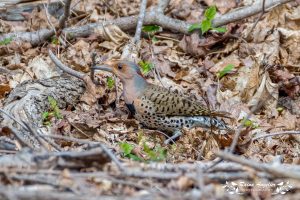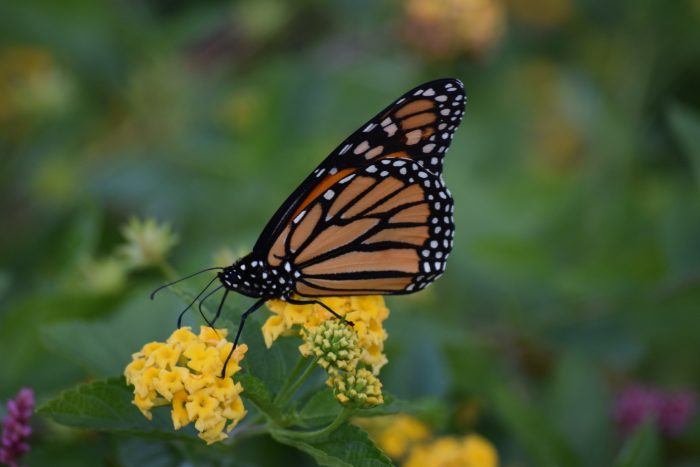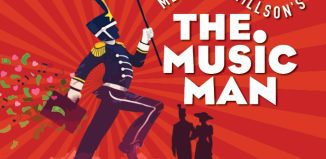EARTH DAY: Helping our planet one yard at a time
By Cayla Rosenhagen

“Think locally, act globally.” It’s a popular expression conveying how small changes accumulate into a significant positive impact felt on a larger scale. Well, in honor of Earth Day, I’d like you to think very locally. Not just close to home, but your home itself—more specifically, your own yard.
The typical suburban community features perfectly manicured lawns maintained by toxic pesticides. Oftentimes, they are home to ornamental shrubs and trees that are non-native species that provide few benefits to local fauna, that generally prefer to seek food and shelter in plant life that is native to the area. Here’s a list of ways you can take action to support Long Island’s diverse wildlife and the entire planet just by making a few changes in how you care for the greenspace right outside your door.
Grow plants that are native to your region. Your favorite backyard critters will thank you. Native plants offer nutrients that are especially healthy for our local wildlife. For instance, dozens of species of wild birds will flock to a red mulberry bush, and common milkweed will attract endangered Monarch Butterflies. Not to mention they need less of your time and maintenance! Because they’re so well-adapted to our climate, native plants don’t need much (if any) watering and are extremely hardy. To see which species are native to your area, please check out Audubon’s Native Plant Database. https://www.audubon.org/native-plants.

Leave the leaves and dead trees. Postpone your spring clean-up and raking the leaves until temperatures reach at least 50 degrees during the day for 7 consecutive days. The dead leaves provide shelter for nesting insects that are the perfect sustenance for many kinds of animals, including baby birds who are hatching this time of year. Dead trees also provide beneficial insects with a home. As long as the dead tree on your property is not threatening any nearby structures, leave it standing to promote a biodiverse ecosystem in your yard. If you are planning on having a tree removed, please do so after nesting season.
Start a pollinator garden. Without pollinators like beetles, flies, bees, butterflies, birds, and ants, three-quarters of all our staple crops wouldn’t exist. Tragically, bee and bird populations are shrinking, primarily due to habitat loss. By growing plants that attract and feed pollinators, you are doing your part to protect hundreds of species of friendly creatures essential to life.
Weed out harmful pesticides and fertilizers. We have become accustomed to depending on weedkillers and chemical-filled plant food to grow pristine gardens and lawns. But these products do more harm than good.
Pesticides don’t only kill the harmful insects, they kill the good ones, too. They also hurt larger creatures including humans. They can harm your pets and backyard birds, and lead to health complications in people. Fertilizers wreck the balance of natural nutrients in the soil and can make your yard less fertile in the long run. Both pesticides and fertilizers contribute to ground and water pollution. Native plants do not need pesticides and fertilizers as they are already perfectly adapted to our soil composition and ecosystem.
Make your yard a Bird Oasis. Turn your yard into a safe haven for feathered friends by offering them multiple food sources, water, and shelter. Plant native flowering and fruit-producing plants, fill your feeders with a variety of seeds, and put out a birdbath, and watch the chickadees, sparrows, warblers, finches, cardinals, and jays flock in. I also implore you to keep your cat indoors. Outdoor cats are deadly predators to birds and kill 2.4 billion annually in the U.S. alone. Watching birds is a wonderful way to reduce stress and enjoy the beauty of the natural world. To learn more, please visit https://4has.org/bird-oasis.
Reduce your lawn. By shrinking the manicured area of your lawn, not only will you leave more room for native plants, but you’ll also lower your water bill and your emissions by mowing less.
Harvest rainwater by collecting it in a rain barrel. You can use rainwater to water your garden and lower your water bill. This sustainable water management strategy also eases the stress on utilities during peak water usage.
Start a compost bin. Composting will reduce the amount of waste you send to the dump and aid your garden as a natural fertilizer. This can be considered a long-term investment in your yard. Plant products like food scraps and paper garbage will decompose to make nutritious plant food in around six months to two years.
To learn more about how to make your yard more eco-friendly, please reach out to the Four Harbors Audubon Society. Also, be sure to stop by the 4HAS’s Tree Fest at the Three Village Historical Society on May 6 from 10 a.m. to 4 p.m. It will be educational and fun for the whole family, with craft activities, educational exhibits, a native plant sale and raffle prizes.
Cayla Rosenhagen is a local high school student who enjoys capturing the unique charm of the community through photography and journalism. She serves on the board of directors for the Four Harbors Audubon Society and Brookhaven’s Youth Board, and is the founder and coordinator of Beach Bucket Brigade, a community outreach program dedicated to environmental awareness, engagement, and education. She is also an avid birder, hiker, and artist who is concurrently enrolled in college.







